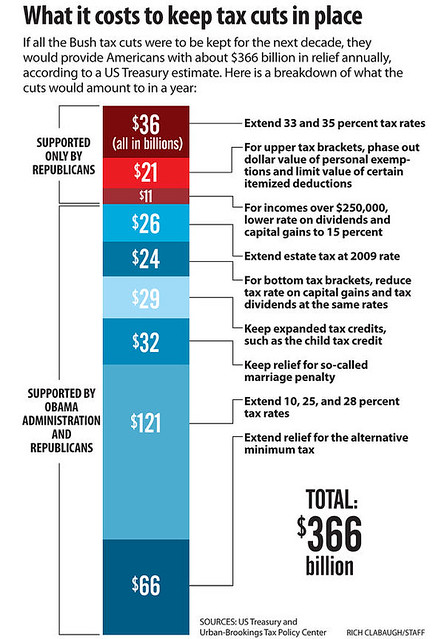Wednesday, August 31, 2011
Catch-22 watch: Alcoholic truck drivers are now a protected class!
In more good news for employers worried about liability, the Obama administration has set up yet another Catch-22 for business:
The federal government has sued a major trucking company for its firing of driver with an admitted alcohol abuse problem.
Alcoholism is classified as a disability under the Americans with Disabilities Act, the suit maintains, and therefore employees cannot be prohibited even from driving 18 wheelers due to their histories of abuse.
Presumably this rationale equally applies to oil tanker captains, bus drivers, airline pilots, and neurosurgeons. Yet again, business has to choose between managing tort liability and navigating federal regulation that makes it much harder to... manage tort liability. Not to mention actually, you know, doing business.
(20) Comments
I wish they all could be California rules
Not.
Only Jerry Brown stands between "date night" and the Democrats, who have passed a bill to regulate wages, hours, and work rules for all domestic workers:
Under AB 889, household “employers” (aka “parents”) who hire a babysitter on a Friday night will be legally obligated to pay at least minimum wage to any sitter over the age of 18 (unless it is a family member), provide a substitute caregiver every two hours to cover rest and meal breaks, in addition to workers’ compensation coverage, overtime pay, and a meticulously calculated timecard/paycheck.
Failure to abide by any of these provisions may result in a legal cause of action against the employer (“parents”) including cumulative penalties, attorneys’ fees, legal costs and expenses associated with hiring expert witnesses, an unprecedented measure of legal recourse provided no other class of workers – from agricultural laborers to garment manufacturers.”
The Alinskyesque response would be to bring lawsuits against prominent California Democrats for technical violations of this ridiculous law. And, by the way, it is an extraordinary burden on two-earner families, many of whom will no longer be able to afford child care, or will conclude that it no longer makes sense for the economically trailing spouse to work. Not only will you destroy the nanny job, the workforce loses experienced employees.
Small-business blogger Warren Mayer, however, thinks that this is an excellent idea:
I know this is exactly the kind of thing you would expect me to oppose, but I have decided this is exactly the kind of thing California needs. I am tired of average citizens passing crazy requirements on business without any concept of the costs and injustices they are proposing, and then scratch their head later wonder why job creation is stagnant.
I want to propose that California do MORE in this same vein. Here are some suggestions:
Read the suggestions.
(4) Comments
Tuesday, August 30, 2011
Stratfor on the war in Libya: The fat lady has not sung
The following note from Stratfor, republished here with permission, clarifies at least some of the questions I had about the Libyan war that is still on-going.
By George Friedman
The war in Libya is over. More precisely, governments and media have decided that the war is over, despite the fact that fighting continues. The unfulfilled expectation of this war has consistently been that Moammar Gadhafi would capitulate when faced with the forces arrayed against him, and that his own forces would abandon him as soon as they saw that the war was lost. What was being celebrated last week, with presidents, prime ministers and the media proclaiming the defeat of Gadhafi, will likely be true in due course. The fact that it is not yet true does not detract from the self-congratulations.
For example, Italian Foreign Minister Franco Frattini reported that only 5 percent of Libya is still under Gadhafi’s control. That seems like a trivial amount, save for this news from Italian newspaper La Stampa, which reported that “Tripoli is being cleaned up” neighborhood by neighborhood, street by street and home by home. Meanwhile, bombs from above are pounding Sirte, where, according to the French, Gadhafi has managed to arrive, although it is not known how. The strategically important town of Bali Walid — another possible hiding place and one of only two remaining exit routes to another Gadhafi stronghold in Sabha — is being encircled.
To put it differently, Gadhafi’s forces still retain military control of substantial areas. There is house-to-house fighting going on in Tripoli. There are multiple strongholds with sufficient defensive strength that forces cannot enter them without significant military preparation. Although Gadhafi’s actual location is unknown, his capture is the object of substantial military preparations, including NATO airstrikes, around Bali Walid, Sirte and Sabha. When Saddam Hussein was captured, he was hiding in a hole in the ground, alone and without an army. Gadhafi is still fighting and posing challenges. The war is not over.
It could be argued that while Gadhafi retains a coherent military force and significant territory, he no longer governs Libya. That is certainly true and significant, but it will become more significant when his enemies do take control of the levers of power. It is unreasonable to expect that they should be in a position to do so a few days after entering Tripoli and while fighting continues. But it does raise a critical question: whether the rebels have sufficient coherence to form an effective government or whether new rounds of fighting among Libyans can be expected even after Gadhafi’s forces cease functioning. To put it simply, Gadhafi appears to be on his way to defeat but he is not there yet, and the ability of his enemies to govern Libya is doubtful.
Immaculate Intervention
Given that the dying is far from over, it is interesting to consider why Barack Obama, Nicolas Sarkozy and David Cameron, the major players in this war, all declared last week that Gadhafi had fallen, implying an end to war, and why the media proclaimed the war’s end. To understand this, it is important to understand how surprising the course of the war was to these leaders. From the beginning, there was an expectation that NATO intervention, first with a no-fly zone, then with direct airstrikes on Gadhafi’s position, would lead to a rapid collapse of his government and its replacement with a democratic coalition in the east.
Two forces combined to lead to this conclusion. The first consisted of human-rights groups outside governments and factions in foreign ministries and the State Department who felt an intervention was necessary to stop the pending slaughter in Benghazi. This faction had a serious problem. The most effective way to quickly end a brutal regime was military intervention. However, having condemned the American invasion of Iraq, which was designed, at least in part, to get rid of a brutal regime, this faction found it difficult to justify rapid military intervention on the ground in Libya. Moral arguments require a degree of consistency.
In Europe, the doctrine of “soft power” has become a central doctrine. In the case of Libya, finding a path to soft power was difficult. Sanctions and lectures would probably not stop Gadhafi, but military action ran counter to soft power. What emerged was a doctrine of soft military power. Instituting a no-fly zone was a way to engage in military action without actually hurting anyone, except those Libyan pilots who took off. It satisfied the need to distinguish Libya from Iraq by not invading and occupying Libya but still putting crushing pressure on Gadhafi.
Of course, a no-fly zone proved ineffective and irrelevant, and the French began bombing Gadhafi’s forces the same day. Libyans on the ground were dying, but not British, French or American soldiers. While the no-fly zone was officially announced, this segue to an air campaign sort of emerged over time without a clear decision point. For human-rights activists, this kept them from addressing the concern that airstrikes always cause unintended deaths because they are never as accurate as one might like. For the governments, it allowed them to be seen as embarking upon what I have called an “immaculate intervention.”
The second force that liked this strategy was the various air forces involved. There is no question of the importance of air power in modern war, but there is a constant argument over whether the application of air power by itself can achieve desired political ends without the commitment of ground forces. For the air community, Libya was going to be the place where it could demonstrate its effectiveness in achieving such ends.
So the human-rights advocates could focus on the ends — protecting Libyan civilians in Benghazi — and pretend that they had not just advocated the commencement of a war that would itself leave many people dead. Political leaders could feel that they were not getting into a quagmire but simply undertaking a clean intervention. The air forces could demonstrate their utility in delivering desired political outcomes.
Why and How
The question of the underlying reason for the war should be addressed because stories are circulating that oil companies are competing for vast sums of money in Libya. These stories are all reasonable, in the sense that the real story remains difficult to fathom, and I sympathize with those who are trying to find a deep conspiracy to explain all of this. I would like to find one, too. The problem is that going to war for oil in Libya was unnecessary. Gadhafi loved selling oil, and if the governments involved told him quietly that they were going to blow him up if he didn’t make different arrangements on who got the oil revenues and what royalties he got to keep, Gadhafi would have made those arrangements. He was as cynical as they come, and he understood the subtle idea that shifting oil partners and giving up a lot of revenue was better than being blown up.
Indeed, there is no theory out there that explains this war by way of oil, simply because it was not necessary to actually to go war to get whatever concessions were wanted. So the story — protecting people in Benghazi from slaughter — is the only rational explanation for what followed, however hard it is to believe.
It must also be understood that given the nature of modern air warfare, NATO forces in small numbers had to be inserted on the ground from the beginning — actually, at least a few days before the beginning of the air campaign. Accurately identifying targets and taking them out with sufficient precision involves highly skilled special-operations teams guiding munitions to those targets. The fact that there have been relatively few friendly-fire accidents indicates that standard operational procedures have been in place.
These teams were probably joined by other special operators who trained — and in most cases informally led — indigenous forces in battle. There were ample reports in the early days of the war that special operations teams were on the ground conducting weapons training and organizing the fighters who opposed Gadhafi.
But there proved to be two problems with this approach. First, Gadhafi did not fold his tent and capitulate. He seemed singularly unimpressed by the force he was facing. Second, his troops turned out to be highly motivated and capable, at least compared to their opponents. Proof of this can be found in the fact that they did not surrender en masse, they did maintain a sufficient degree of unit coherence and — the final proof — they held out for six months and are still holding out. The view of human-rights groups that an isolated tyrant would break in the face of the international community, the view of political leaders that an isolated tyrant facing the might of NATO’s air forces would collapse in days and the view of the air forces that air strikes would shatter resistance, all turned out to be false.
A War Prolonged
Part of this was due to a misunderstanding of the nature of Libyan politics. Gadhafi was a tyrant, but he was not completely isolated. He had enemies but he also had many supporters who benefitted from him or at least believed in his doctrines. There was also a general belief among ordinary government soldiers (some of whom are mercenaries from the south) that capitulation would lead to their slaughter, and the belief among government leaders that surrender meant trials in The Hague and terms in prison. The belief of the human-rights community in an International Criminal Court (ICC) trying Gadhafi and the men around him gives them no room for retreat, and men without room for retreat fight hard and to the end. There was no way to negotiate capitulation unless the U.N. Security Council itself publicly approved the deal. The winks and nods that got dictators to leave in the old days aren’t enough anymore. All countries that are party to the Rome Statute are required to turn a leader like Gadhafi over to the ICC for trial.
Therefore, unless the U.N. Security Council publicly strikes a deal with Gadhafi, which would be opposed by the human-rights community and would become ugly, Gadhafi will not give up — and neither will his troops. There were reports last week that some government soldiers had been executed. True or not, fair or not, that would not be a great motivator for surrender.
The war began with the public mission of protecting the people of Benghazi. This quickly morphed into a war to unseat Gadhafi. The problem was that between the ideological and the military aims, the forces dedicated to the war were insufficient to execute the mission. We do not know how many people were killed in the fighting in the past six months, but pursuing the war using soft military power in this way certainly prolonged the war and likely caused many deaths, both military and civilian.
After six months, NATO got tired, and we wound up with the assault on Tripoli. The assault appears to have consisted of three parts. The first was the insertion of NATO special operations troops (in the low hundreds, not thousands) who, guided by intelligence operatives in Tripoli, attacked and destabilized the government forces in the city. The second part was an information operation in which NATO made it appear that the battle was over. The bizarre incident in which Gadhafi’s son, Seif al-Islam, announced as being captured only to show up in an SUV looking very un-captured, was part of this game. NATO wanted it to appear that the leadership had been reduced and Gadhafi’s forces broken to convince those same forces to capitulate. Seif al-Islam’s appearance was designed to signal his troops that the war was still on.
Following the special operations strikes and the information operations, western rebels entered the city to great fanfare, including celebratory gunfire into the air. The world’s media chronicled the end of the war as the special operations teams melted away and the victorious rebels took the bows. It had taken six months, but it was over.
And then it became obvious that it wasn’t over. Five percent of Libya — an interesting calculation — was not liberated. Street fighting in Tripoli continued. Areas of the country were still under Gadhafi’s control. And Gadhafi himself was not where his enemies wanted him to be. The war went on.
A number of lessons emerge from all this. First, it is important to remember that Libya in itself may not be important to the world, but it matters to Libyans a great deal. Second, do not assume that tyrants lack support. Gadhafi didn’t govern Libya for 42 years without support. Third, do not assume that the amount of force you are prepared to provide is the amount of force needed. Fourth, eliminating the option of a negotiated end to the war by the means of international courts may be morally satisfying, but it causes wars to go on and casualties to mount. It is important to decide what is more important — to alleviate the suffering of people or to punish the guilty. Sometimes it is one or the other. Fifth, and most important, do not kid the world about wars being over. After George W. Bush flew onto an aircraft carrier that was emblazoned with a “mission accomplished” banner, the Iraq war became even more violent, and the damage to him was massive. Information operations may be useful in persuading opposing troops to surrender, but political credibility bleeds away when the war is declared over and the fighting goes on.
Gadhafi will likely fall in the end. NATO is more powerful then he is, and enough force will be brought to bear to bring him down. The question, of course, is whether there was another way to accomplish that with less cost and more yield. Leaving aside the war-for-oil theory, if the goal was to protect Benghazi and bring down Gadhafi, greater force or a negotiated exit with guarantees against trials in The Hague would likely have worked faster with less loss of life than the application of soft military power.
(9) Comments
Monday, August 29, 2011
GuitarGate watch
A short note on the United States Postal Service
My oft-repeated view that we need a long-term plan to wind down the United States Postal Service is unpopular even on this blog. Still, I can't resist this link:
The U.S. Postal Service, expecting $7 billion in losses this year amid slumping mail volume, is still paying thousands of its workers millions of dollars each year to do nothing.
But it’s paying tens of millions of dollars less for “standby time” than it did just two years ago, according to a new report.
Long-standing labor agreements with two major postal unions prohibit the Postal Service from laying off or reassigning workers because of broken equipment or periods of low mail volume. Instead, idled employees show up for work, sit in a break room or cafeteria and do nothing.
It's as though the Sopranos negotiated that contract, only better.
Time was, people would blush wanting to be paid to do nothing.
An idea: The next time the union contracts come up for negotiation the USPS should play hardball on such crazy work rules and eat the strike. Then we will see how much people miss getting the mail. I am fairly sure I will not miss it at all.
(7) Comments
A little pile of unrelated links
Descending in to the dark night of mental illness? Apparently yet another dire consequence of climate change. The bad news just keeps piling up.
Apparently the Lockerbie bomber Abdel Basset al-Megrahi, the dude the Scots released on "compassionate" grounds a couple of years ago, is now, finally, staring in to the abyss. He had better hope that the all-powerful single diety is Allah, rather than the alternatives.
A few ideas for policymakers who want to encourage business formation at essentially no cost to the government.
For reasons that are wholly unclear to me, the White House is "a bit touchy" about the First Family's vacations. Not on my account. I'm all for the president going on vacation. Sure, I would have preferred that he do it before he appointed all those leftists to run the administrative state, but you can't have everything.
TTYL.
(7) Comments
Sunday, August 28, 2011
A picture of Irene hitting Virginia
From my Facebook news feed...
Very curious -- from this distance the surf does not appear too dramatic -- perhaps it is a sheltered area -- but the arc of the clouds is unmistakable.
(9) Comments
Saturday, August 27, 2011
I hereby retract everything critical I have ever said about Barack Obama
Pendent le déluge
The power is down all over during the big rain, including in downtown Princeton which almost stays up even when outlying areas go dark. The utility crews are going to put in some serious overtime in the next few days. I suspect they are going to be exhausted when all is said and done. Ex ante, I am grateful for their hard work.
Right now, however, during the deluge, I am in Las Vegas, and therefore able to bring you what those of us in the personal media game call "content." The content for this evening is three pictures from my cell phone, each of which pleases me in some way.
Wynn (the official TigerHawk Vegas hotel), reflected in Encore.
The lobby of the Bellagio. The next thing you know, they are going to try to make a cheese steak, which will be even less realistic than this other great icon of Philadelphia.
Paris in the mist. Sort of.
More later.
(2) Comments
Friday, August 26, 2011
Annals of numismatics: The hunt for the '33 double eagle
Coin collecting does not make it in to Business Week very often, so when it does we notice. In this case, it involves one of the longest investigations in the history of the Secret Service:
The most valuable coin in the world sits in the lobby of the Federal Reserve Bank of New York in lower Manhattan. It’s Exhibit 18E, secured in a bulletproof glass case with an alarm system and an armed guard nearby. The 1933 Double Eagle, considered one of the rarest and most beautiful coins in America, has a face value of $20—and a market value of $7.6 million. It was among the last batch of gold coins ever minted by the U.S. government. The coins were never issued; most of the nearly 500,000 cast were melted down to bullion in 1937.
Most, but not all. Some of the coins slipped out of the Philadelphia Mint before then. No one knows for sure exactly how they got out or even how many got out. The U.S. Secret Service, responsible for protecting the nation’s currency, has been pursuing them for nearly 70 years, through 13 Administrations and 12 different directors. The investigation has spanned three continents and involved some of the most famous coin collectors in the world, a confidential informant, a playboy king, and a sting operation at the Waldorf Astoria in Manhattan. It has inspired two novels, two nonfiction books, and a television documentary. And much of it has centered around a coin dealer, dead since 1990, whose shop is still open in South Philadelphia, run by his 82-year-old daughter.
“The 1933 Double Eagle is one of the most intriguing coins of all time,” says Jay Brahin, an investment adviser who has been collecting coins since he was a kid in Philadelphia. “It’s a freak. The coins shouldn’t have been minted, but they were. They weren’t meant to circulate, but some did. And why has the government pursued them so arduously? That’s one of the mysteries.”
The story is inherently fascinating and well-worth reading, but it does raise the usual question: With law enforcement priorities like these, have we really cut "discretionary spending" to the bone?
(6) Comments
Thursday, August 25, 2011
The settlement of America by mail
A very cool video that shows the spread of post offices across the United States between 1700 and 1900, a proxy for the non-native settlement of the country.
Posted: Visualizing US expansion through post offices. from Derek Watkins on Vimeo.
(1) Comments
Wednesday, August 24, 2011
Crime without intent? Yes, but only if you are in business.
Occasionally my friends with little or no exposure to the business world ask me for examples of the Obama administration's anti-business attitude, or ways in which it actively discourages talented people from going in to business, or how it promotes defensive behavior that limits liability rather than innovation and the taking of risk. Well, here is a just one little example in a single industry, courtesy of my old law firm, Latham & Watkins:
The Food and Drug Administration (FDA) has released aggressive guidelines for prosecutions under the Food, Drug, and Cosmetic Act(FDCA)that put corporate officers at risk of criminal liability merely because of their position within a violating company. The guidelines reinvigorate the long dormant Park doctrine, which allows corporate officers to be held criminally responsible for corporate violations of the FDCA and convicted of a misdemeanor even if — unlike virtually all other criminal laws — they had no knowledge of the illegal conduct.
For years Park prosecutions were rare, but regulators see the Park doctrine as a potentially powerful enforcement tool that “can have a strong deterrent effect on the defendants and other regulated entities.” The release of Park prosecution guidelines by the FDA follows a series of statements by FDA officials that enforcement efforts — and Park prosecutions in particular — are set to increase, and executives in industries subject to the jurisdiction of FDA cannot afford to ignore this trend. Park exposes corporate officers to criminal liability for FDCA violations based solely upon their position of responsibility within the company, and penalties can be harsh — including large fines, debarment (prohibiting executives from providing services to a regulated company), individual and corporate exclusion from participation in federal health care programs, as well probation and jail time. And exposure is broad: any employee in the chain of command with authority to correct or prevent a violation could potentially be prosecuted.
Crime without mens rea, specifically and only for executives. Just what we need to attract our best people to companies that make unimportant things like food, drugs, and medical devices.
(23) Comments
Turn it Off - The Book of Mormon
Two quick links that have nothing to do with each other
Because we are nothing if not fair, we note that federal investigators have cleared Michael "The hockey stick" Mann of scientific misconduct, finding "no evidence" to support the allegation.
This morning, CNBC's Jim Cramer is coming to us from the Bakken formation in North Dakota, the center of an almost unbelievable "gold rush" type boom on account of its potentially massive oil reserves. But North Dakota is not the only huge discovery right here in the United States:
TomCo Energy is a London-based company which owns leases on over 3000 acres of oil shale land in Utah’s Uintah Basin. As I have noted several times (most recently just last week), the Uinta Basin is the site of the massive Eocene Green River Shale formation – potentially the largest reservoir of unconventional petroleum in the world. With total reserves estimated at up to 1.3 trillion barrels, and ultimately recoverable reserves of 800 billion barrels or more, this formation holds three times or more the amount of Saudi Arabia’s proven reserves. Unlocking this formation would change the energy outlook of the nation – and of the world – for a century or more.
Glenn Reynolds notes that the enemies of progress will do what they can to stop this:
Expect environmentalists to fight this tooth-and-claw since changing the energy outlook of the nation (for the better, at least) is anathema to them.
OK, more than two links.
(3) Comments
Tuesday, August 23, 2011
A short note on the GOP field
Professor Bainbridge almost perfectly captures my own perhaps ill-informed opinion of the GOP field, including a new reason to have some small hope for Rick Perry.
(9) Comments
Creationism in Schools
(49) Comments
Monday, August 22, 2011
Neoconservativism's third term
Walter Russell Mead makes an argument about Barack Obama's Middle East policy that is seemingly calculated to drive almost everybody nuts:
Neither President Obama’s critics nor his defenders really want to look at this situation straight on. His critics would have to acknowledge that far from capitulating to our enemies and giving away the store, President Obama has in some respects improved America’s regional position. But his defenders must also squirm; in general, President Obama succeeds where he adopts or modifies the policies of the Bush administration. Where (as on Israel) he has tried to deviate, his troubles begin.
The most irritating argument anyone could make in American politics is that President Obama, precisely because he seems so liberal, so vacillating, so nice, is a more effective neoconservative than President Bush. As is often the case, the argument is so irritating partly because it is so true.
President Obama is pushing a democracy agenda in the Middle East that is as aggressive as President Bush’s; he adopts regime change by violence if necessary as a core component of his regional approach and, to put it mildly, he is not afraid to bomb. But where President Bush’s tough guy posture (“Bring ‘Em On!”) alienated opinion abroad and among liberals at home, President Obama’s reluctant warrior stance makes it easier for others to work with him.
True I think. All of which will cause liberal interventionism to return to its pre-Bush roots in the Democratic party.
Release the hounds.
(5) Comments
Alice's Restaurant Illustrated
Saturday, August 20, 2011
The Obama rout
Late to the party on this one, but the ongoing popularity contest is not looking good for our president. Not good at all. His only hope, which is sadly realistic, is that the Republicans nominate somebody even less qualified than he is.
(25) Comments
The presumption of male guilt
Peter Berkowitz uses academic freedom for its intended purpose, which is to indict and morally convict American universities of having thrown away the rights of male students at the behest of the Obama administration. It is chilling stuff, and the most important article you will read all day:
Our universities impair liberal education not only by what they teach and do not teach in classrooms but also by the illiberal rules they promulgate to regulate speech and conduct outside of class.
The Obama administration has aggravated the problem. On April 4, Assistant Secretary for Civil Rights Russlynn Ali, head of the Department of Education's Office for Civil Rights (OCR), distributed a 19-page "Dear Colleague" letter to "provide recipients with information to assist them in meeting their obligations."
At the cost of losing federal funding—on which all major institutions of higher education have grown dependent—colleges and universities are obliged under Title IX of the Civil Rights Act (which prohibits discrimination on the basis of sex) to thoroughly investigate all allegations of sexual harassment and sexual assault on campus, including the felony of rape. They are also obliged, according to Ms. Ali, to curtail due process rights of the accused.
OCR's new interpretation of Title IX "strongly discourages" universities from permitting the accused "to question or cross-examine the accuser" during the hearing. In addition, if universities provide an appeals process, it must be available to both parties—which subjects the accused to double jeopardy.
Most egregiously, OCR requires universities to render judgment using "a preponderance of the evidence" standard. This means that in a rape case, a campus disciplinary board of faculty, administrators and perhaps students serves as both judge and jury. Few if any of these judges are likely to have professional competence in fact-gathering, evidence analysis or judicial procedure. Yet to deliver a verdict of guilty, they need only believe that the accused is more likely than not to have committed the crime.
This is the lowest standard. It is much less demanding than "beyond a reasonable doubt," which is used in the criminal justice system, and the intermediate standard of "clear and convincing proof." Yale, Stanford and many other universities have rushed to comply with OCR's directives....
In short, universities are institutionalizing a presumption of guilt in sexual assault cases. This implements the doctrine developed in the 1980s and '90s by postmodernists, radical feminists and critical legal studies scholars that inspired the ruinous campus speech codes. That doctrine teaches that the American political order is designed to oppress the weak; that racial minorities and women, whether they realize it or not, are victims; and that the truth, except for the first two propositions, is infinitely malleable.
These teachings—and the disdain for the rights of the accused and liberty of thought and discussion that they sustain—are animated by illiberal convictions shared by many faculty and administrators, as well as the Obama administration Department of Education. Notwithstanding their selective appeal to the relativity of truth to neutralize alternative views, they are convinced that in practice all the hard questions about right and wrong have been finally settled and that faculty and administrators are uniquely in possession of the correct answers. Such dogmatism and imperviousness to evidence are hallmarks of the authoritarian mind.
All of that is scary and yet well-known to conservative bloggers. The question is, where are the professors who ought to stand up?
Where are the professors of literature who will patiently point out that, particularly where erotic desire is involved, intentions can be obscure, passions conflicting, the heart murky and the soul divided?
Where are the professors of natural science who will declare that OCR-dictated hearings are antithetical to the spirit of the scientific method, which depends on respect for the facts and testing claims through rational procedures?
Where are the professors of history, political science and law who will insist clearly and in public that due process is a fundamental component of American political institutions and culture, a cornerstone of our legal system, and indispensable in a free society to the fair administration of justice?
Where are the professors of moral philosophy and practical ethics who will stand up and declare that the presumption of innocence rightly gives expression to both the belief in the dignity of the individual and the awareness of human fallibility?
And where are the deans, provosts and university presidents who will explain in no uncertain terms to their campus communities and to the wider public that weakening due process and freedom of speech protections erodes the framework within which free inquiry flourishes?
So far such professors and high university officials are nowhere to be found.
One might reasonably ask, if the privilege of tenure is not used by professors to speak against offenses against the use of federal power to oppress a subset of the university community, what is it good for?
(38) Comments
It is fine to read the New York Times, just don't believe it
The Grey Bitch's Lady's front-page hatchet job on Darrell Issa was so riddled with factual errors that it is hard to classify as anything other than a partisan attack. Nothing wrong with that, of course, but a touch ironic coming from a paper that thinks that the cause of "campaign finance reform" justifies the regulation of speech.
(2) Comments
Friday, August 19, 2011
Fun with statistics
Oh, lookee, seven out of the ten richest members of Congress are Democrats!
I crack me up.
(2) Comments
Oh, Canada
Some beautiful pictures of Canada, at the topside of the International Appalachian Trail.
There be bears.
CWCID: Althouse.
(1) Comments
The lions of August
Another almost real-time shot from my friend's trip to Africa, this time lions in Botswana.
I want to go to Africa.
(0) Comments
Morning links that have nothing to do with each other
The best reason yet to worry about global warming. (And yet, we have cut federal spending to the bone and the only alternative is to raise taxes.)
Of course, if the planet does heat up we will still be able to grow chickens.
A very interesting look at how riots start, and how they stop.
Oil is down to $80 this morning, which -- in their present mood -- equity investors take to mean that the world's economy is weakening. Perhaps, but in the United States, at least, there are few better stimulus programs than lower gas prices. And there is a political impact, too: Look at U.S. gasoline prices since Barack Obama's inauguration.
I suspect that graph is approximately the inverse of Barack Obama's approval ratings. And that graph would make an awesome intellectually dishonest negative political ad. Bad luck, Mr. President.
This morning the futures point to another hit in the stock markets and perhaps a sour August weekend in the Hamptons for the longs. Well, here's a little perspective.
TTYL.
(5) Comments
Thursday, August 18, 2011
Value for your tax dollars
Item:
President Barack Obama’s Department of Labor launched a new Smartphone app last week that tells outdoor workers when it’s hot and humid outside.
The DOL’s Occupational Safety and Health Administration’s new “Heat Safety Tool,” designed for outdoor workers who are already outside, tells workers the temperature and humidity level of where they’re at. From that data, the app calculates the “heat index” and “risk level” for workers in the given location....
The “Heat Safety Tool” app provides a color-coded “risk level” scale, ranging from yellow or “lower” risk to red or “very high to extreme” risk. When the risk-level is “lower” the app recommends workers “drink plenty of water, even if you’re not thirsty.” When it’s “very high to extreme,” the app says workers should “establish a water drinking schedule” of about four cups per hour and “set up cool, shaded rest areas.”
And yet, we have apparently cut federal spending to the bone and now the only alternative is to raise taxes.
I admit, I'm easily confused.
(2) Comments
Higher ed
Annals of the regulatory state: Three links
The regulators are out in force, so much so that it is almost impossible to monitor their mischief.
Item: ExxonMobil discovers a bunch of oil, and the United States government seizes on a paperwork question to deprive it of the fruits of its investment. Our government does not discover or extract oil, but it loves redistributing the profits from those activities. Doing it this early in the process is a new wrinkle. More here.
Item: Eric Holder's Justice Department has decided to investigate one of the three national ratings agencies that assessed mortgage-backed securities in the years leading up to the financial crisis. You will have no problem guessing which of the three Holder decided to torture.
Item: The SEC seems to have "illegally destroyed files and documents related to thousands of early-stage investigations over the last 20 years." As even the NYT is willing to point out, "[t]he S.E.C. is the very agency that is charged with making sure that Wall Street firms retain records of their own activities, and has brought numerous enforcement cases against firms for failing to do so." Regulators think every burden on business is easy and inexpensive, until they have to do it themselves.
Release the hounds.
(3) Comments
Moments ago, in Zambia...
...a friend of mine took this picture on his Blackberry.
What a remarkable world we live in.
UPDATE: Another one.
Yes, that is Victoria Falls.
UPDATE (11:50 am EDT): The sun is going down in Zambia...
(2) Comments
Wednesday, August 17, 2011
Two quick links that have nothing to do with each other
What is the truth about employment in Texas under Rick Perry? This data-rich post (from a writer who does not support Perry) seems to dispose of most of the attacks. Good blogging, in the old school sense.
Bullet-proof human skin. Super-soldiers, here we come!
That is all for now.
(5) Comments
Tuesday, August 16, 2011
If Bush said this...
President Barack Obama said yesterday in Decorah, Iowa, that he absorbs more political criticism than Abraham Lincoln, the assassinated 16th U.S. president, attracted from his Civil War critics.
The comment came during a question-and-answer session where one invited audience member asked Obama how he deals with his congressional critics in the GOP. “The Congress doesn’t seem to be a good partner. You said so yourself, they’re more interested in seeing you lose than [seeing] the country win,” the questioner lamented.
“Democracy is always a messy business in a big country like this,” Obama responded. “When you listen to what the federalists said about the anti-federalists … those guys were tough. Lincoln, they used to talk about him almost as bad as they talk about me.”
OMFG.
Even Eric Foner, the very left wing professor of history at Columbia, could not let this one go by:
Criticism of Lincoln in his day “was even more vitriolic than what you see about Obama,” said Eric Foner, a Pulitzer Prize-winning presidential historian at Columbia University. “Obama is a guy who has a thin skin and does not take criticism well.” Foner’s Pulitzer-winning volume was titled ”The Fiery Trial: Abraham Lincoln and American Slavery.”
There is a theory among the non-righties on my Facebook news feed that he was making a joke -- anybody got a link to the video? -- but if so it is a dangerous joke to make insofar as it reinforces the impression that Obama is unusually self-absorbed, even by the standards of politicians.
UPDATE: The video. Not sure I think he was joking, but he might have been. And if he was, the joke was perhaps more revealing than he realized. Release the hounds!
(13) Comments
Homestuck - Atomic Bonsai and Umbral Ultimatum
(0) Comments
Morning linkage
A few quick items for your August morning:
In a link shopped around by my lefty Facebook friends, the SEC is investigating Standard & Poor's for potential insider trading in advance of the downgrade of the credit rating of the United States. Smells political to me, with the twin benefits of a free-floating accusation against S&P that has already been repeated thousands of times in the media and the implicit threat to Moody's and Fitch. I predict that the investigation will find nothing after imposing massive legal expenses on S&P, but the point will have been made. One can both dislike S&P and deplore the political use of the power to prosecute.
[UPDATE: Much more on the unlikelihood that the government will be able to prove liability for insider trading on advanced news of the downgrade.]
Spengler tells something close to the truth about the financial crisis. Read the whole thing, and ask yourself whether you are among the guilty.
The somewhat lefty financial blogger Ritholtz catalogs many of the economic predictions of the last seven or eight years, and especially the last three. It is a useful reminder that many of our most confident predictors are no more right than a dart board.
Via Glenn, sales of home safes "soar." The soaring prices of gold and other transportable assets (see, e.g., the rare coin market) suggests that people want their money where they can feel it. Because we provide a valuable service here at TigerHawk, here is a link to a list of home safes on Amazon, many of which are substantially discounted off the MSRP.
Barack Obama, in shoulder-to-shoulder solidarity with George W. Bush (circa 2002), wants the government to continue to subsidize the market for home mortgages. While that may be in the short to medium term financial interest of lots of people -- mortgage originators, real estate brokers, and people who build houses -- does anybody actually believe it is good for the country? I suspect that with the benefit of hindsight even Dubya would not agree.
More later.
(6) Comments
Monday, August 15, 2011
Bad luck
Cloudscapes over America
Last week I flew from Charleston to Houston, and snapped a few pictures of the clouds along the way.
There are days when you want the window seat no matter how much you have had to drink.
(4) Comments
Friday, August 12, 2011
A small item for Princetonians
For those few of you who might care, the PAW has assembled a list of bloggers who are Princeton alumni. There are a few surprises. I admit, I did not know that John Stossel went to Old Nassau.
(8) Comments
A couple of charts
Bad as the American economy has been, here are a couple of charts that remind us that the Great Recession has been child's play compared to the Great Depression.
(4) Comments
The Postal Service reads TigerHawk!
Well, not really. But I did write a post earlier this week calling for a plan to wind down the United States Postal Service over the next 15 years or so. Not immediately, but to recognize that its original mission is fading away and it has not identified a new one to justify the considerable expense of the organization, and that an orderly reduction followed by a winding down would be a rare example of governmental competence.
The post office post attracted a lot of comments, many of which revealed a latent statism among our readers which I found, well, surprising! No matter, the USPS is trying to shrink, if only Congress will let it:
The financially strapped U.S. Postal Service is proposing to cut its workforce by 20 percent and to withdraw from the federal health and retirement plans because it believes it could provide benefits at a lower cost.
The layoffs would be achieved in part by breaking labor agreements, a proposal that drew swift fire from postal unions. The plan would require congressional approval but, if successful, could be precedent-setting, with possible ripple effects throughout government.
Let us hope so.
Anyway, read the linked article in its entirety. Among other things, it exposes federal wages and benefits as far more generous than comparable plans available in the private sector. As if we didn't know that already.
(3) Comments
Wednesday, August 10, 2011
Phone camera dump: A few pictures from Charleston
I spent last weekend in Charleston (SC) and thereabouts with friends, cycling, eating, and walking around. There are a few stray pictures in my phone that you might, or might not, enjoy.
The Battery, on Sunday afternoon.
South of Broad...
The knocker at 46 King Street.
Charleston's old Lutheran church, rising up above its garden and cemetery.
Your Blogger, his host, and Fort Moultrie, on Sullivan's Island.
(9) Comments
Tuesday, August 09, 2011
The Daily Show: Foreclosing B of A
Monday, August 08, 2011
Maine mist
Regular reader Bomber Girl spent the weekend sailing the Maine coast, and posted this picture on her Facebook page. I rather liked it.
I haven't been to Maine since I was a kid, with my Mainer grandfather. I need to rectify that.
(11) Comments
The ten best cities to live in the United States
Somebody's list of the ten best American cities to live in. Austin partisans will not be surprised, although in the heart of the current heatwave -- 101 is a cool day right now -- even a few loyalists might beg to differ.
(6) Comments
Is it smart for the Obama administration to attack S&P?
Secretary of the Treasury Geithner attacked Standard & Poor's, saying it showed "terrible judgment."
"They've handled themselves very poorly. And they've shown a stunning lack of knowledge about the basic U.S. fiscal budget math," Geithner said in his first public comments about the credit rating decision.
The clip has been running more or less non-stop on CNBC all morning.
One is forced to wonder whether it is wise for the Secretary of the Treasury, however stung that his debt has been downgraded, to attack S&P. There are at least two reasons why it might be wise, neither of which are creditable, but in the main the attack would seem to boost S&P's credibility, which is the only thing it has going for it.
Back to first principles. Standard & Poor's is just a bunch of dudes who express their opinions about credit. You and I are also entitled to do that (see, inter alia, the First Amendment). The value of the ratings (apart from some residual regulatory impact because the government has not written the enabling regulations for Dodd-Frank) depends on whether investors find them credible. That credibility has suffered grievously since the financial crisis. S&P (along with the other agencies) is fighting to preserve its credibility.
Now, when the Secretary of the Treasury starts popping his veins with rage over S&P's decision, he looks just like an intemperate CEO who loses his mind because some analyst downgrades his stock. No difference, and with the same result: The angry response only enhances the credibility of the analyst (or rating agency) that issues the downgrade. Tim Geithner's defensive rant runs the great risk of persuading investors that they should pay attention to S&P.
If Geithner's objective is to discredit S&P and blunt the impact of the downgrade, it would have been far smarter to act like they are just dopes that nobody ought to listen to. He might have said "Look, these are just a bunch of analysts with spreadsheets who are expressing an opinion as they are entitled to do under the First Amendment. There are lots of people with lots of opinions about the credit of the United States, and many of them will think that S&P is wrong, and that is the beauty of free markets. We look forward to the day when S&P reconsiders its views, but until then we will manage the finances of the United States taking the interests of all its citizens in to account."
The only problem with the "ignore 'em" approach, of course, is that Obama administration has been in a state of high anxiety over the rating agencies for weeks, which has enormously boosted their credibility. Geithner is therefore in something of a box -- playing it cool now only makes his boss appear easily panicked, which is never a good look for a president. In other words, the linkage of the downgrade risk to the debt ceiling negotiations, which came from the White House, effectively confines the administration's response to the downgrade to ranting, which only makes the downgrade worse.
Of course, there are at least two less creditable reasons for the administration's assault on S&P. First, it needs a political scapegoat, and the credit rating agencies are easy targets because of their shoddy practices in the mortgage market. Second, it must be hoping to intimidate Moody's and Fitch in to maintaining the top rating. The problem with the intimidation approach, though, is that it must succeed or it will fail massively. If S&P emerges from the fight stronger rather than weaker (as I suspect it will), Moody's and Fitch will notice that defying the
Release the hounds.
MORE: Thank you, Glenn, and welcome Instapundit readers.
(17) Comments
Sunday, August 07, 2011
A short note on the idiocy of the United States Postal Service
The United States Postal Service is now losing a billion dollars a month with no chance of recovery in sight.
The Postal Service is -- obviously -- a vast and enormously expensive agency that is losing its purpose in the world. Like the linked blogger, with one small exception (letters from my daughter who is in boarding school) I get nothing of value in the mail. It is all junk, an obvious burden on municipal waste systems, and an enormous hassle every time I leave town, which is more or less every week. I have moved almost entirely online, except for communications with organizations that are too lame to deal with their customers on that basis. I get very few physical publications. Paper checks are such a hassle that I take ages to deposit them. The postal service does not do anything I need, or cannot do by some other means.
Recognizing that some Americans are not so far along the path to modernity, is it not by now obvious that in just a few years (if it has not already happened) electronic means will supplant virtually all low value physical distribution of information? Should we not develop a ten or fifteen year plan for winding down the post office? Kill off regular mail delivery, and if the package delivery business can be salvaged as a third competitor to FedEx and UPS, privatize that.
Many of our post office buildings would make awesome restaurants, malls, or offices for small businesses. Let's end it with dignity, now, when we can do so with some deliberation, and salvage what value we can.
(25) Comments
Saturday, August 06, 2011
Scoring the downgrade
Who is to blame for yesterday's downgrade of the debt of the United States to AA+? Both parties, going back at least a generation, for lacking the courage to state the obvious: That the financial sustainability of the "entitlement" programs of FDR and LBJ depends on each generation having at least as many productive children per capita as it did. That has not happened. Shrinking families mean that there are too few workers to support the long, subsidized retirements of an American public that has been taught to believe that 40 - 45 years of productive work in a life of 80 years or more is quite enough. We have stopped having lots of children so we need to change the programs, but no federal politician, apart from a few mavericks and the Tea Party crowd elected last fall, is willing to say so, much less actually do anything about it.
The politics of the matter are quite a bit different from the reality. President Obama is going to take the downgrade in the shorts for at least two reasons. First, it happened on his watch, and presidents get the benefit and bear the burden of all sorts of things that happen during their terms whether or not they were responsible. Second, and perhaps more importantly, President Obama has been jaw-dropplingly inconsistent on the question of spending and deficits since the moment he took office. Philip Klein pretty much nails it (bold emphasis added):
Defenders of Obama will attempt to pin the blame on his predecessor, President Bush, and on intransigent Tea Party radicals in the current Congress. But that would leave out the part in between. For his first two years in office, Obama’s party controlled both chambers of Congress – for part of that period, he had a filibuster proof majority in the Senate. During that time period, he and his fellow Democrats could have passed his supposedly ideal, long-term, deficit-reduction package -- one that represented a “balanced approach” between spending cuts and tax increases. It also could have delayed the deficit reduction for several years, so it wouldn’t have affected the current weak economy or the “investments” he considers crucial. Forget about actually accomplishing serious deficit reduction -- he didn’t even attempt it.
When Obama came into office, he argued that we needed deficit spending to boost the economy, so he passed a $800 billion stimulus package. Then, in one of his first supposed pivots to the deficit, he convened a ‘fiscal responsibility summit’ in February 2009. But that actually turned out to be part of a different pivot altogether. It was during that summit that then White House Budget Director Peter Orszag declared, “health care reform is entitlement reform.”
And so, for the next 13 months, Obama spent all of his energies trying to get health care legislation across the finish line. The end product was a plan that, according to both the Congressional Budget Office and actuary for the Centers for Medicare and Medicaid Services, did not bend the health care cost curve down. Let’s even set aside the argument over the accounting gimmicks that were employed to obtain a CBO score that showed modest deficit reduction. The reality is this: the law used money raised through tax hikes and Medicare cuts that otherwise would have been available for deficit reduction, to instead expand Medicaid by 18 million beneficiaries and create a massive new health care entitlement.
Of course, there’s more. After health care passed last March, Obama punted on the debt for the rest of the year as he awaited a report from his fiscal commission. He then ignored its recommendations and released a budget so ludicrous that within two months, it failed 0 to 97 in the Senate and he himself rejected it. He instead delivered a speech about his deficit reduction vision, which didn’t have enough details for the CBO to score. And then he spent the last few months arguing that he was prepared to offer Republicans a “grand bargain,” but to this day he hasn’t released details of this supposedly awesome deal that Republicans refused, beyond calculated leaks to favored reporters.
Of course, the ultimate political consequences will shrink in to nothingness if there are no financial consequences, which will take days if not months to develop. But if there are, nobody will believe the New York Times when it tells us to blame George Bush and the Tea Party and Rush Limbaugh.
(28) Comments
A Taliban victory in Afghanistan?
In the category of news that will hit you in the gut, 31 American soldiers and 7 Afghan friendlies died today when the Taliban apparently took out a loaded Chinook helicopter. The crash resulted in the worst single day for American fatalities since the war in Afghanistan began almost ten years ago. That's bad news.
The worst news? Apparently the "majority of those killed in the crash" were members of Navy Seal Team 6, the unit that took out Osama Bin Laden, "according to AP sources."
A typical Seal Team consists of six platoons, so it probably has between 250 and 300 men. That means that Seal Team 6 lost 10% of its ranks in today's fighting, a startling proportion by contemporary standards.
Of course, one is forced to wonder whether the Taliban did in fact kill soldiers who killed Osama Bin Laden. If so, that would be a substantial propaganda victory and a potential shot in the arm for allied jihadis.
All of which raises the next obvious question: Why did the Administration leak the obviously classified information that the men on that Chinook came from Seal Team 6? It makes no sense, unless its motive was to bum us all out and hand a public relations victory to our enemy.
(6) Comments
A small sign that Barack Obama is in trouble on the left
Yes, there has been obvious and rising criticism of Barack Obama from the leftysphere and other "progressive" quarters in recent months. It is, though, a bit hard for those of us on the, er, not-left, to know whether the White House is actually worried about it. Some small evidence that it is: Valerie Jarrett has written a piece for the HuffPo with the curious headline "Why I'm Proud to Be Part of President Obama's Team." Apparently that is no longer self-evident, even to the readers of the Huffington Post.
(2) Comments
Thursday, August 04, 2011
Sign of the times?
In what might be signs of their respective times, consider the "keynote" speakers at the last year's annual meeting of ADVAMED, the trade association of the medical device industry (which faces massive rifle-shot taxes to fund Obamacare), and this year's (bold emphasis added):
Last year:
AdvaMed 2010 is proud to announce its conference keynote speakers include: Centers for Medicare and Medicaid Services Administrator Dr. Donald Berwick; CBS Evening News Anchor Katie Couric; U.S. Food and Drug Administration Commissioner Dr. Margaret Hamburg; and U.S. Secretary of Commerce Gary Locke.
This year:
The world's premier medical device and technology conference, AdvaMed 2011, announced President George W. Bush will address industry stakeholders at the 5th annual medtech conference hosted by the Advanced Medical Technology Association. AdvaMed 2011 will be held in Washington D.C. at the Walter E. Washington Convention Center, Sept. 26-28. President Bush will provide the keynote address on Sept. 27.
Notice the difference?
(6) Comments
Run-D.M.C/Aerosmith - Walk This Way
Wednesday, August 03, 2011
Listen to Marco
Freshman Republican Senator Marco Rubio is, along with New Jersey's own Governor Awesome, the future of the party. Listen to his speech at the end of the debt crisis and come to your own conclusion:
(2) Comments
O'Quiz!!!
Egads, I scored 6 on this week's O'Quiz, below the current average of 6.48. I've obviously been paying insufficient attention. All y'all with too much time on your hands, post your scores in the comments!
(12) Comments
Two items for my many open-minded progressive friends
First, Walter Russell Mead quite nicely describes the fundamental reasons why progressives have not won a durable majority in a generation, and probably will not do. The first half is stronger than the "nerd vs. jock" analogy in the second half, which he might have reinforced with reference to the anti-gun and anti-hunting sensibilities of the coastal elites, but the essay -- which any conservative would regard as essentially self-evident -- ought to be interesting to liberals.
Second, the WaPo's Charles Lane more than persuasively points out that the left's claim that the right has a monopoly on violent or divisive rhetoric is, well, complete and utter nonsense. See, e.g., the transporting hypocrisy of The New York Times.
Release the hounds.
(8) Comments
Tuesday, August 02, 2011
Storms
For those of you concerned by, or interested in, the Atlantic hurricane season, here is a useful site to track the big storms as they arise and move.
(0) Comments
Monday, August 01, 2011
A short note on the argument over the "Bush tax cuts"
There has been, and will continue to be, an enormous amount of hoo-ha over the relevance of the "Bush tax cuts" to our current fiscal problems. They are indeed relevant, at least in a static model of the economy, to the tune of trillions of dollars over the ten year budget window. However, that part of the tax cuts reserved for the "rich" -- the bit defended by Republicans alone -- are very small beer compared to the total package. See, for instance, this nifty graphic prepared by the Christian Science Monitor during last year's argument over the extension of the cuts, which ultimately passed a Democratic Senate and which President Obama signed in to law.
Point is, if you believe the static model of tax-cutting (a belief that is embedded in virtually all liberal political rhetoric on the subject), then you really need to repeal all of the Bush tax cuts to have a meaningful impact on the budget.
Candidly, I'd support a repeal of all the Bush tax cuts long before I would support soaking me the "rich" alone. If we are going to demotivate people, we might as well get some actual deficit reduction for our trouble.
(11) Comments
Protest sign of the year
The Onion: Democrats, Republicans Celebrate Pitiful Excuse for Common Ground
Our newest entitlement: Outlawing co-pays for the Pill
Yes, we may have just made a minuscule dent in our nation's long-term fiscal problem. But on the same day that our Congress finally stitched together an almost embarrassingly small reduction in federal spending after a titanic fight that threatened to bring the financial system to its knees, again, the Obama administration announces the latest entitlement: A ban on co-pays for women's "wellness" care, including for FDA-approved contraceptives. Yes, it will be against federal law for insurance companies to require so much as a nickel in co-pays for birth control pills and their ilk.
Note, however, that there is no entitlement, or even subsidy, for condoms. Apparently we still expect men who want sex without consequences -- and, to be clear, I am not judging here, rather enjoying sex without consequences myself -- to go out-of-pocket.
Free contraception for women is allegedly calculated to "reduce health care costs". The question is, how will it reduce health care costs? We know, for example, that Wall Street analysts (Lazard, for example) are saying that this is good news for contraceptive manufacturers such as Conceptus, so there will be more, rather than less, money spent directly. The argument must be that more contraception today saves money down the road. Presumably by preventing downstream healthcare expenses. Such as those associated with bearing and raising children.
Of course, if we stop reproducing entirely we can cut "health care costs" to zero.
Release the hounds.
(11) Comments
Mystery solved...
Back from traveling
I just spent a wonderful long weekend visiting the TH Daughter in Salt Lake City and environs, and the only link I have to show for it involves edible wild plants. No, I didn't know dandelions had more iron than spinach, either.
More later. No, really.
And thank you for straightening out the debt thingy while I was gone.
(3) Comments


























